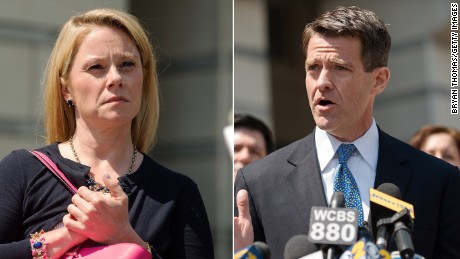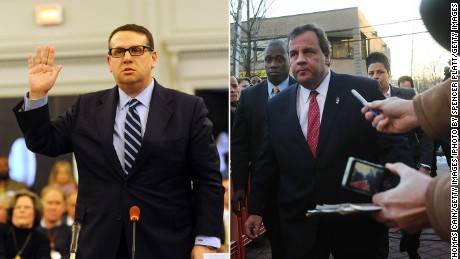“It’s possible that marathon running could be an acute stress and may contribute to the progression of existing chronic kidney disease, and this is where runners with this condition need to talk to their physicians and talk to their trainers,” said Dr. Chirag Parikh, a professor at the Yale University School of Medicine and lead author of the study.
He added that, with adequate training, the kidneys can adapt to such physical stress.
“I would think that the majority of marathon runners are doing OK because the 22 people who participated in the study had normal kidney function and had been running marathons for an average of 12 years,” Parikh said. “So, if running marathons caused a great deal of permanent kidney injury, these runners would have minimal kidney function remaining.”
Marathon running in the United States has grown in popularity in recent years.
Between 1990 and 2014, the number of US marathon finishers skyrocketed from about 224,000 to a record high of 550,637, according to
Running USA, a nonprofit that tracks the number of marathon runners each year in an annual report.
Last year, about 507,600 runners finished a marathon in the United States, said Scott Bush, a spokesman for Running USA, which was not involved in the new study.
Kidneys show signs of damage, repair themselves
Runners participating in the 2015
Hartford Marathon in Connecticut were recruited for the study and 22 met the study requirements, as well as completed the study.
A day before the marathon, urine and blood samples were collected from the runners and analyzed under a microscope. The researchers examined the samples for cellular changes and shifts in levels of a
compound called creatinine, which is a marker used to diagnose acute kidney injury.
Then, within 30 minutes of completing the race, urine and blood samples were again collected from the runners and analyzed for signs of acute kidney injury.
“We wanted the blood drawn soon after the marathon, which is not an easy thing. Many of the runners are exhausted,” Parikh said.
The researchers found higher-than-normal levels of creatinine in the urine and blood samples of almost all of the runners immediately after the marathon, with 82% of the runners showing signs of at least stage 1 acute kidney injury.
“Almost everybody had a significant increase in the novel markers of injury, inflammation, and repair,” Parikh said.
The kidneys’ responses to the stress of a marathon were eerily similar to what Parikh said he would see among patients who might be treated in a hospital for complications with medications that impact the kidneys, or who might be suffering kidney complications after cardiac surgery, for instance.
“It was very surprising that the intensity of the findings were similar,” Parikh said.
About a day and a half after the marathon, samples again were collected, and they no longer showed signs of acute kidney injury.
“The good part was that we were able to confirm that by day two or by 48 hours after the marathon, the findings returned to baseline,” Parikh said.
‘Be careful, think about it, and be prepared’
The participants in the study were not taking
non-steroidal anti-inflammatory drugs, such as ibuprofen, within 48 hours of the race, however such drugs can impact the kidneys and may put runners’ health at risk when combined with marathon running.
Dr. Malissa Wood, co-director of the Corrigan Women’s heart health program at Massachusetts General Hospital and associate professor at Harvard Medical School in Boston, called the study findings “a real wake-up call.”
“I do know these are people who are not taking non-steroidals, who are pretty well trained, and had an average finish indicating they had properly prepared for the marathon, and still 82%, had some kidney impact from the running,” Wood said about the study, in which she was not involved.
“That just says to me, be careful, think about it, and be prepared,” she said.
A limitation to the new study, besides its sample size, is that the researchers didn’t compare the findings among their runners to other race participants or marathon runners as a whole, said Dr. Martin Hoffman, a health sciences clinical professor at the University of California, Davis and a founding member of the
Ultra Sports Science Foundation.
The study also didn’t include a change in body weight as a way to get an assessment of how hydrated each runner was, Hoffman said. He was not involved in the new study but has led separate research on
acute kidney injuries following ultramarathon running.
“The fact that kidney injury markers were normalized or improving within 24 hours should help alleviate fear of permanent kidney injury, and supports what we have previously demonstrated,” Hoffman said about the new study.
The kidneys are temporarily impacted during marathon running for various reasons, one being that some of the blood supply kidneys typically receive is being pumped to the body’s muscles instead of the organ, Parikh said.
“When someone runs 26 miles, the blood supply to the skin and muscle increases tremendously, because they need a lot of oxygen,” he said. “It’s estimated that up to 25% of blood ends up going to skin and muscle, and when this happens, that means the blood is getting diverted from other organs. So, while the skin and muscle are perfused at a higher rate, the kidneys are receiving a reduced blood supply.”
The environment in which you are running can also influence how a marathon may impact your body, said Wood, the associate professor at Harvard Medical School.
Tips for runners
“The truth is, when you’re exercising for four hours, your body needs to maintain levels of glucose and it needs to be hydrated, especially if you’re running in a warm climate,” Wood said. “Sixty to 70 degrees for a marathon, that’s warm, and 80 or 90 is really warm.”
Wood led a study on 60 runners who completed the Boston Marathon in 2004 and ’05. The runners had some
abnormalities in heart structure and function after completing the marathon, according to the study, which was
published in the journal Circulation in 2006.
See the latest news and share your comments with CNN Health on Facebook and Twitter.
“What we saw in our study was that if people didn’t train very much and they were sort of new to marathon running they had a lot more leakage of heart enzymes and it’s a lot harder on their bodies because they haven’t been chronically exposed to the conditions imposed by prolonged exercise,” Wood said. “Prolonged endurance exercise increases bloodflow to the leg muscles but can shunt blood away from the gut and kidneys.”
Therefore, adequate training is key to minimizing any potentially harmful impacts marathon running can have on the body, she said.
Wood and Hoffman, the professor at the University of California, Davis, both offered some tips for safely running a marathon:
- Pay attention to what your body is telling you during and after a run, Hoffman said.
- When it comes to proper hydration, simply drink to thirst. By doing this, you will most likely avoid both severe dehydration, which increases the risk of kidney injury, and overhydration, which can also cause serious health issues, Hoffman said.
- Wood added that many runners don’t like to stop for water during a race due to fear that it may significantly affect their finish time, but “being dehydrated and exercising is really bad for your organs and your physiology,” she said.
- Make sure that you eat breakfast the morning of a race, Wood said.
- Get a good night’s sleep the night before a race, Wood said.
- Properly train before a marathon to avoid injury, Wood said.
“Generally, athletes recover without any need for specific medical intervention by simply rehydrating based on their thirst,” Hoffman said about what to do after running.
“It’s also important to keep this all in perspective,” he said. “While there may be some risks with marathon running, the lack of regular exercise among most of our population is far more dangerous and costly to society than the overall risks from participation in marathon running.”





